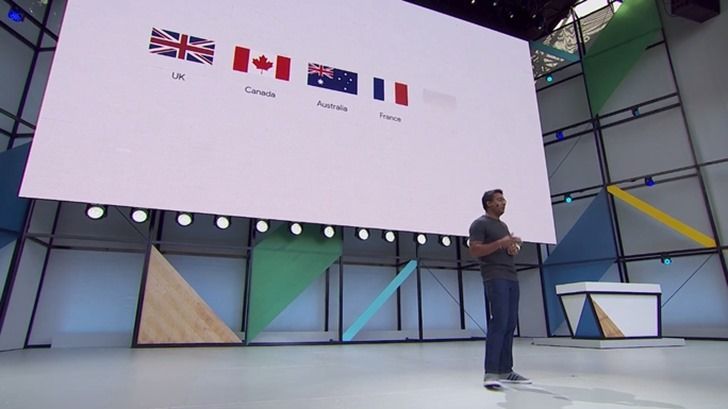latest
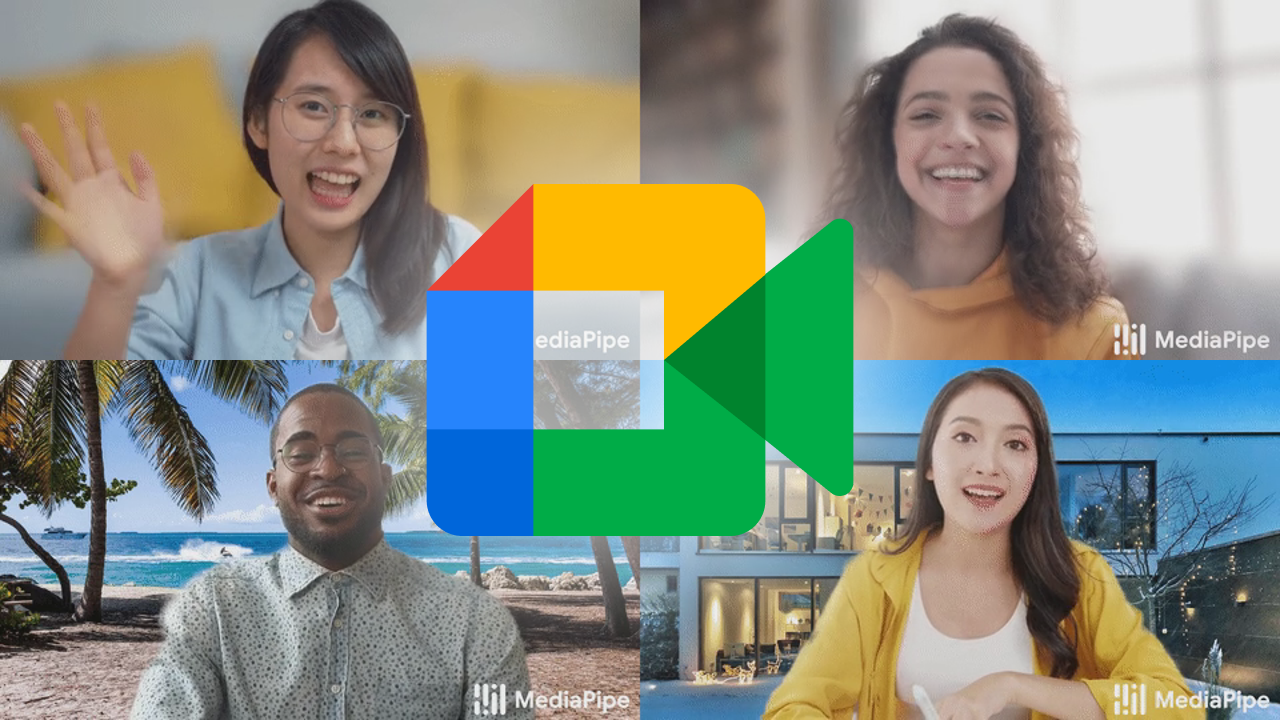
Google Meet brings live captions to four new languages on mobile
It's only available in Europe and Asia Pacific for now
The sudden surge in working from home has led Google to heavily invest in its video chat tools, including Google Meet (formerly Hangouts Meet). Last month it gained the ability to accept multiple join requests at once, and now Meet's live caption feature will support more languages.
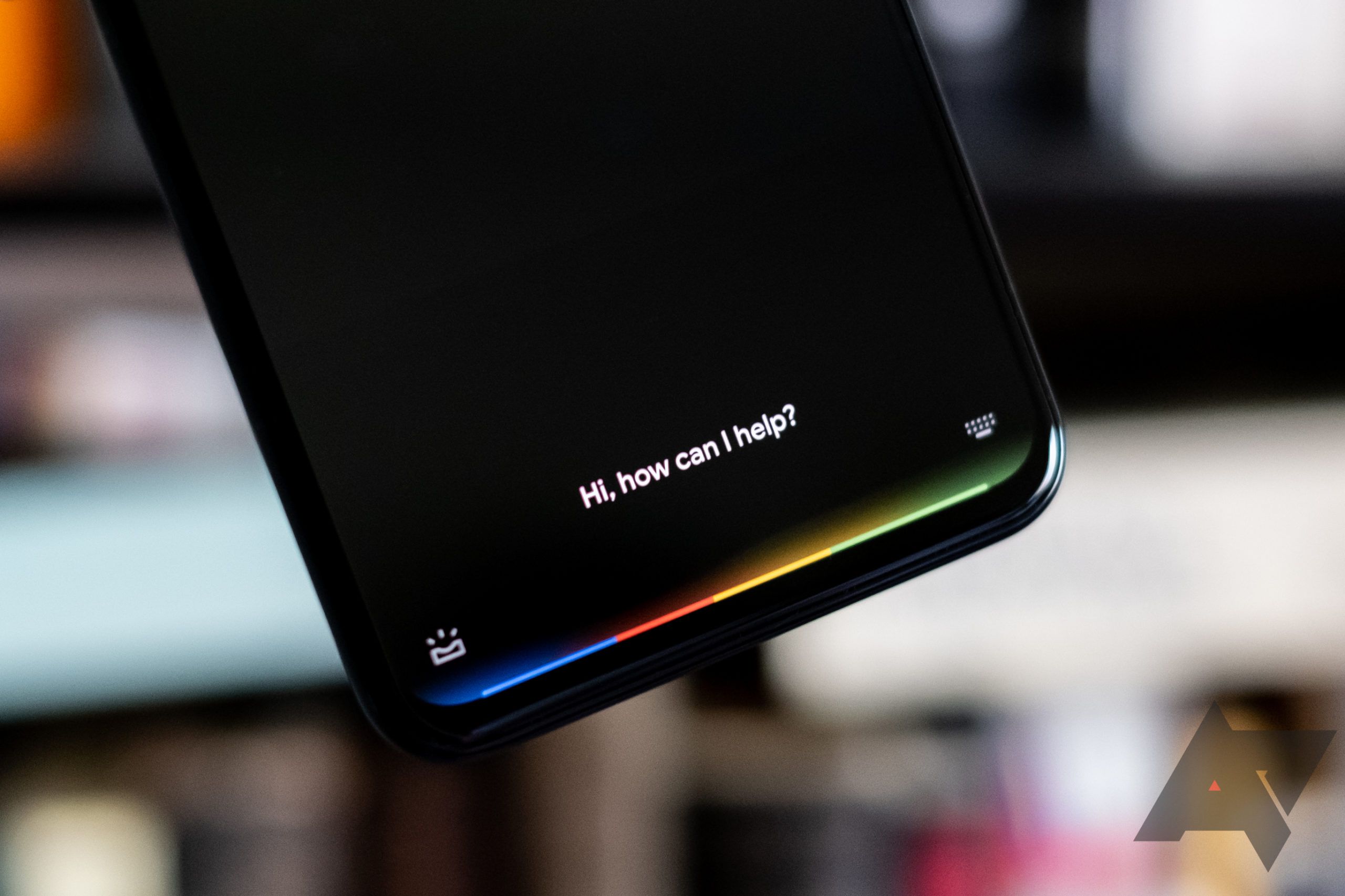
New Google Assistant adds 4 languages, but don't expect the same abilities as English
French, German, Italian, and Spanish are the "lucky" winners
In the Pixel 4a's announcement post, Google said that the new Assistant, which had been only available in English and Japanese so far, would "soon" support four new languages. Nearly two months later, that promise is materializing. You can now use the faster and cleaner Assistant in French, German, Italian, and Spanish.

With its Smart Clock, Lenovo introduced a new type of Asssitant-enabled smart display. Unfortunately, it could only speak English when it came out, as it runs off a custom Android Things platform, which is different from the one used by Lenovo Smart Displays and Nest Hubs. However, Google just updated its official Assistant support pages to indicate the device now supports French and German.

Assistant-enabled smart displays came out about a year ago, but they could exclusively speak English until they learned Canadian French recently. Because of this dialect limitation, the devices have only been available for sale in the US, UK, and Australia. However, newly added support for French and German means they are coming to Europe as well.
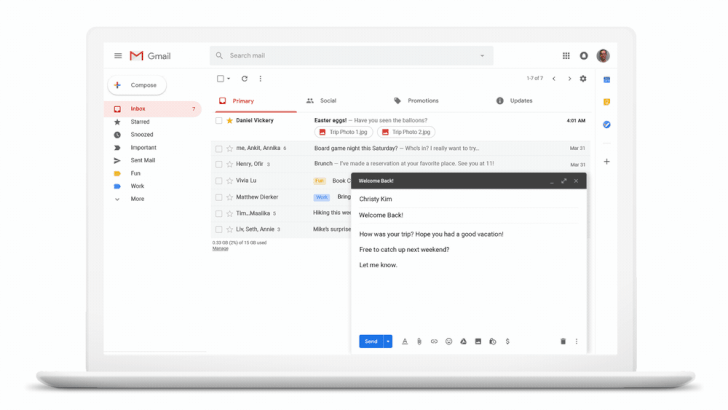
It's hard to believe that Gmail is fifteen years old today. In human years, that would equate to lots of sneaking around, unapproved driving, under-age drinking, and daily existential crisis about everything — i.e. normal teenage drama. But in Gmail years, this means we're getting some demure features. Namely, the email service finally lets us schedule emails.
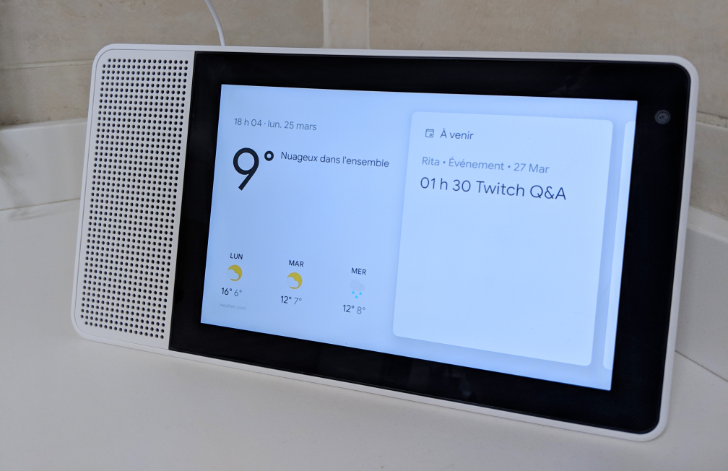
In the past couple of years, Google has only added new language support for Assistant on a product when that particular product went officially on sale in the dialect's corresponding country. For example, the Home speakers began speaking Italian a few days before they launched on the Store in Italy, same for Spanish and Spain/Mexico, Chinese and Taiwan, etc... you get the gist. So upon seeing that Smart Displays can now speak French Canadian, it's easy to extrapolate that the Home Hub may soon be coming to Canada.
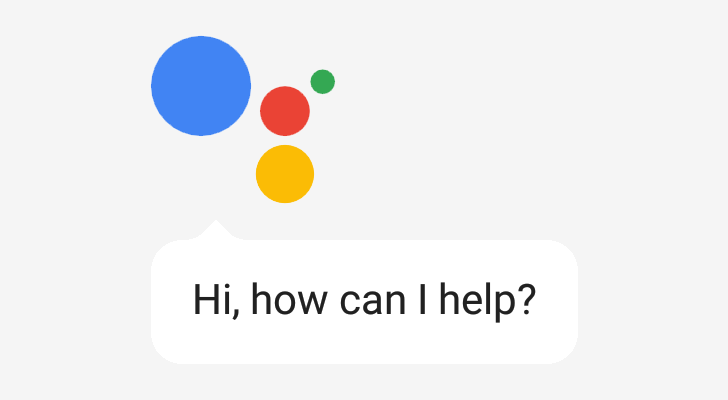
Read update
- According to an update made to the Language and Locale Support section of the Actions on Google documentation site, these new higher-quality WaveNet voices will start to roll out on March 4th. The new voices provide users of the Actions on Google platform with voices that meet or exceed a 3.6 mean opinion score (i.e., which provide better perceived quality than the previous TTS voices used).
As with most of Google's products, Assistant is an incredibly powerful tool in the United States, but its functionality is limited in other countries. This is understandable, since there are dozens of other major languages worldwide with countless dialects, and speech recognition for each variation can take a while to develop. At Mobile World Congress, Google announced a massive expansion for Assistant's language support.
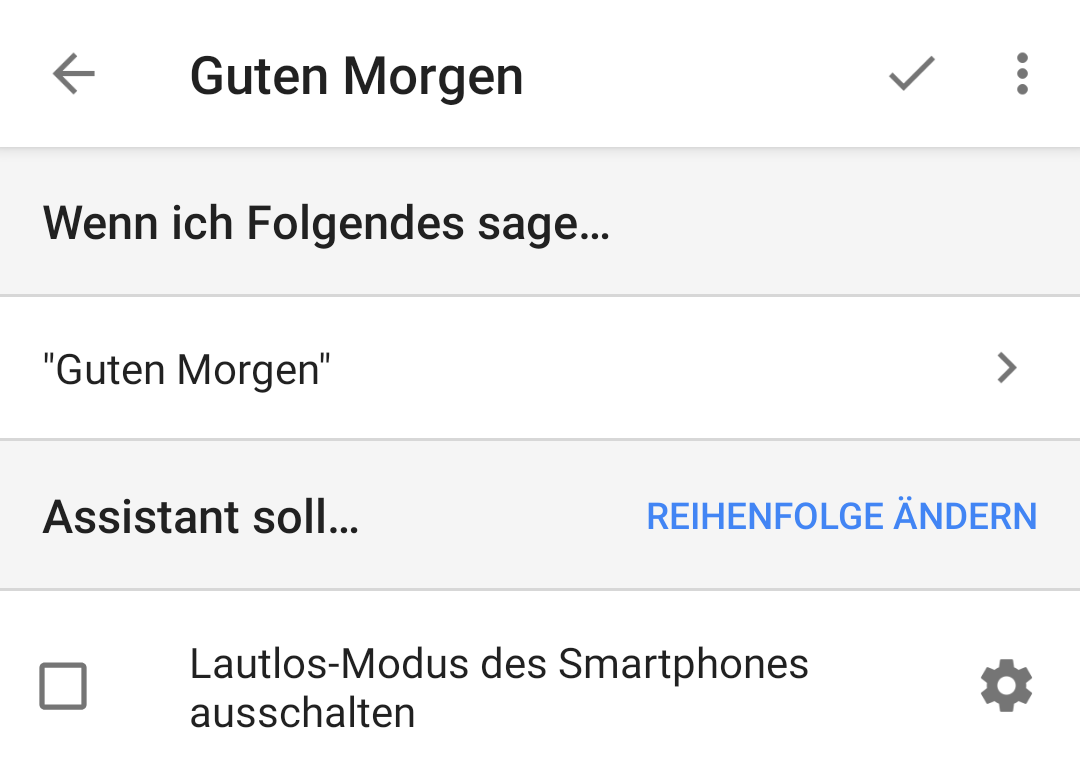
Google Assistant routines can save you a lot of time by executing multiple commands in succession after you say a simple sentence. They started off as "My Day," which brought a simple morning routine, but then multiple routines were enabled, as were custom routines, and finally scheduled routines. But until recently, they were only officially available if you set your Assistant to use English (US). Now, they're supported in many more language/country combinations.

Your Google Assistant is bilingual starting today — at least, for any pair of six specific languages
Google's Assistant has been making great strides in both functionality and speech recognition since its original release in the far off year of 2016. In fact, Google says that it has improved so much that, starting today, it can recognize two different languages interchangeably. Your Google Home is now bilingual, something no other digital assistant can do — at least, since Google's other assistant, Google Now. But there is a caveat: it supports only two languages among a list of six.

Google Lens' availability has been expanding ever since its first announcement. Although it started as an exclusive for Pixel owners in Google Photos, it quickly showed up in Assistant too, then rolled to non-Pixel devices in Photos, and eventually made it to those devices in Assistant too. However, through it all, Lens in Assistant and Photos has been limited to one language: English. Até que enfim it's now showing up for users in five other languages: French, German, Italian, Portuguese, and Spanish.
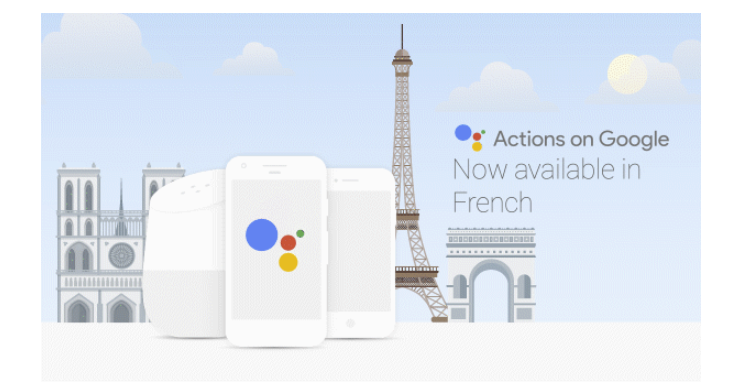
I'll be honest, I'm having trouble keeping track of the distinction Google seems to be trying to make between "Apps for the Google Assistant," "Actions on Google," and the Google Assistant. I get that the ambiguous double name for the former expands the capabilities of the latter for developer use. But, frankly, the difference in marketing seems entirely unnecessary and overly confusing, both for consumers and for myself.

Google doesn't make things very easy for us to explain or for users to understand. For example, while Google Assistant can speak English, French, German, Hindi, Japanese, Portuguese, and Spanish in Allo, it can only speak US English on Android phones but it can talk in different English dialects plus German on Pixel devices. Oh and it supports English, French, and German on Google Home. To make matters even worse, the third-party developer branch of Assistant, Actions on Google, only works in US English now but Google is implementing more languages and we already know British English will be supported next.
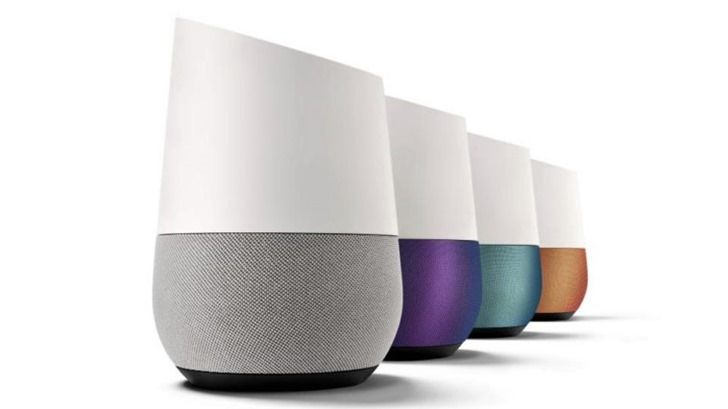
Get ready to say "bonjour" to Google Home, French speakers. Google's Assistant-powered speaker will soon be available for purchase in France, and as you might expect, that means Assistant can also speak French now. This comes on the heels of Google Wifi launching in France late last month.

Read update
- The teaser was accurate, and Google Wifi is now up for purchase at both the German and French Google Store. Right now you can pick up one for 139,00 €. The two-pack isn't currently available for purchase, though it is expected to cost 249,00 €. Interested parties can register on a waiting list via the product page.
It isn't officially announced, but earlier today Google posted a teaser GIF about upcoming product availability on their French Google+ page. The meaning of the image wasn't entirely clear since it's just an animation of some buildings growing out of the ground, as a bubble in the center reflects waves around. However, since the filename was "Google Wifi #3.gif," I don't think it's too much of a stretch to make a guess.

If you're in France, I have good news for you; you're now eligible to take surveys through Google Opinion Rewards and earn Google Play credit cash through PayPal. Granted, you won't be able to make too much, but hey, free is free.

Knowing one language is for chumps. Oops, I might have alienated a huge portion of our readership right there. But seriously, as someone who can read, write, and fluently speak three languages, I swear by the versatility and opportunities that this kind of skill enables. I wouldn't be here on Android Police if I had stuck to my mother tongue, would I?

[Lollipop Bug] Zut Alors: Setting Android 5.0 Language To Canadian French Can Cause SystemUI Crashes
Our readers in Quebec may want to temper their excitement for any upcoming Lollipop updates. According to this lengthy thread on Google's Android issue tracker, a number of French-speaking users are seeing system-breaking bugs. When setting an Android 5.0 device's language to Canadian French, it will periodically experience a SystemUI crash, usually when plugged in to charge or sync. The problem only seems to be affecting those who select "Français (Canada)," not "Français (France)."

Under the hood of Google Now, powering all those beautiful cards that pop up when you search for certain things, is Google's Knowledge Graph. In what might be the company's most ambitious project ever, Google aims to categorize and classify all information so that when you search for, say, Jeff Goldbum, the search engine knows you might also be interested in information about Chaos Theory or survival tips for raptor attacks. Today, the company announced an extension to this already-huge product: availability in Spanish, French, German, Portuguese, Japanese, Russian, and Italian. Pretty huge.

The headlines keep rolling in today - first, Google began selling the Galaxy Nexus online, and now, Mountain View has accidentally published details about its exciting interesting... new cloud service.





